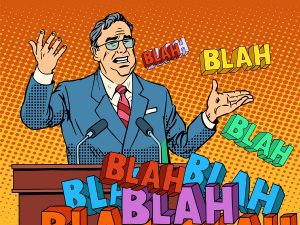 America seems to love polls, and the media loves to feed us poll results on a daily basis, but what do they really mean? And what is their true usefulness? If we take a poll on a specific question with a few hundred people out of a population of 300 million, we are often told we have a “statistically significant” sample and can use the results as a sample of what the entire population thinks. But public opinion is difficult to define and doesn’t easily fit into a one-size-fits-all poll.
America seems to love polls, and the media loves to feed us poll results on a daily basis, but what do they really mean? And what is their true usefulness? If we take a poll on a specific question with a few hundred people out of a population of 300 million, we are often told we have a “statistically significant” sample and can use the results as a sample of what the entire population thinks. But public opinion is difficult to define and doesn’t easily fit into a one-size-fits-all poll.
I get the math. I even trust the process, but it does not translate into knowledge that I want to use in making really important decisions. If I want to understand people’s position on Cherry Garcia vs. Chunky Monkey, then okay, I think a survey is a good tool. But if I want to discuss something as complicated as healthcare policy, then public opinion has very limited utility. I would have to ask a lot of very specific questions to understand how people feel about different aspects of the policy, and even then this would not help us to truly craft a robust policy.
Are you working with the public? Then you need to know how to identify the full range of stakeholders in this free download:
[button link=”https://theparticipationcompany.com/wp-content/uploads/2021/01/Skill-sheet-stakeholders.pdf” size=”medium” target=”_blank” icon=”” color=”alternative-1″ lightbox=””]Download TPC’s Guide[/button]
We use Skill Sheets like this one in our training sessions. If you’d like to know more, please check them out now.
Public opinion is difficult to define and is just that: opinion. It is rarely the result of thoughtful analysis or deep learning. As with anything complicated, to weigh in on decisions for complex, long-term, and expensive social issues, we would all need to get smart first to truly understand the underlying problems and challenges in seeking a solution. Rather than simply asking for opinions about fully formed policies, good decision-making would dictate asking survey questions to help define the problems and needs, and then jointly crafting a workable and sustainable policy based on reasoning and collaboration.
Public Participation is the process of making really hard decisions on complex issues with diverse stakeholder viewpoints. We don’t traffic in public opinion. Rather, we seek out representative groups of stakeholders to engage in shared learning on a topic, including all of the key challenges, concerns, and needs of different stakeholders, and then work cooperatively to craft solutions that will meet criteria and constraints and serve the greatest set of stakeholders possible. So, next time you see the results of a poll, ask yourself “so what does this really mean, and how can I use it in a legitimate way?”
Author: Doug Sarno

I appreciate this perspective, as I find my agency tends to be a bit survey happy at times and biologists are generally the ones creating the surveys. That said, I don’t think it is an either or. I don’t agree that surveys have limited utility if done correctly with robust social science methods. The key is to determine what you really need to know, from whom and how you will use the information in the decision process. These fundamental questions tend to not get the imperative attention that is needed. Then you can design a process for engaging stakeholders and collecting information (and/or sharing/building information) with a number of the myriad tools that are available. The trend in social sciences (and I think could and should spill over to public participation practices) is a mixed method approach. Quantitative approaches like well-designed, generalizable surveys can get the range of thinking on salient topics. The qualitative approaches and engagement techniques can get to the underlying why and the nuances that are inherent in value-laden complex decisions like health care, endangered species management or many other land management natural resource issues that my agency faces. Thanks for the opportunity to weigh in!!
Pingback: The Effectiveness of Polling in Community Engagement - Bang The Table